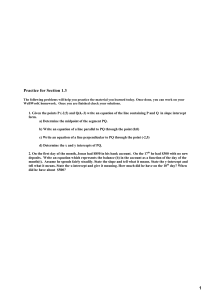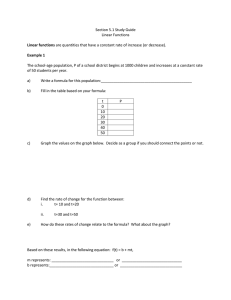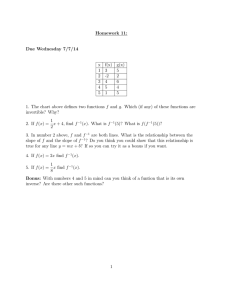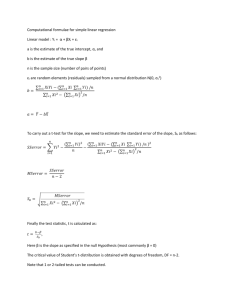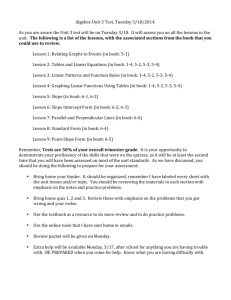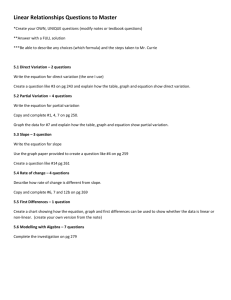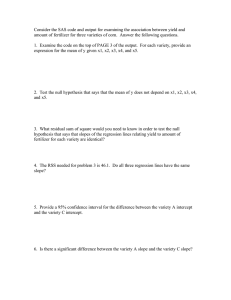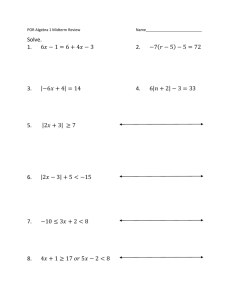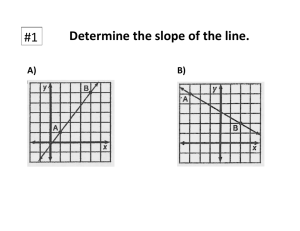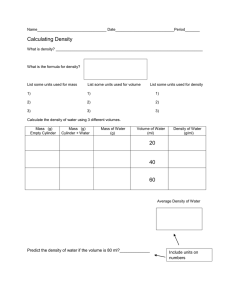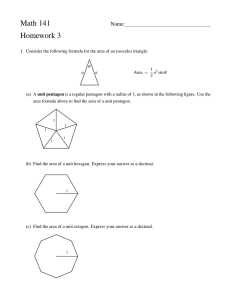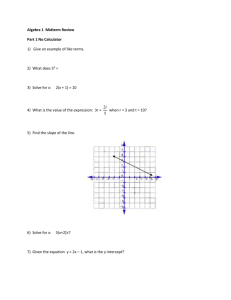MATH COMPENTENCY FOR PRINCIPLES OF ECONOMICS
advertisement
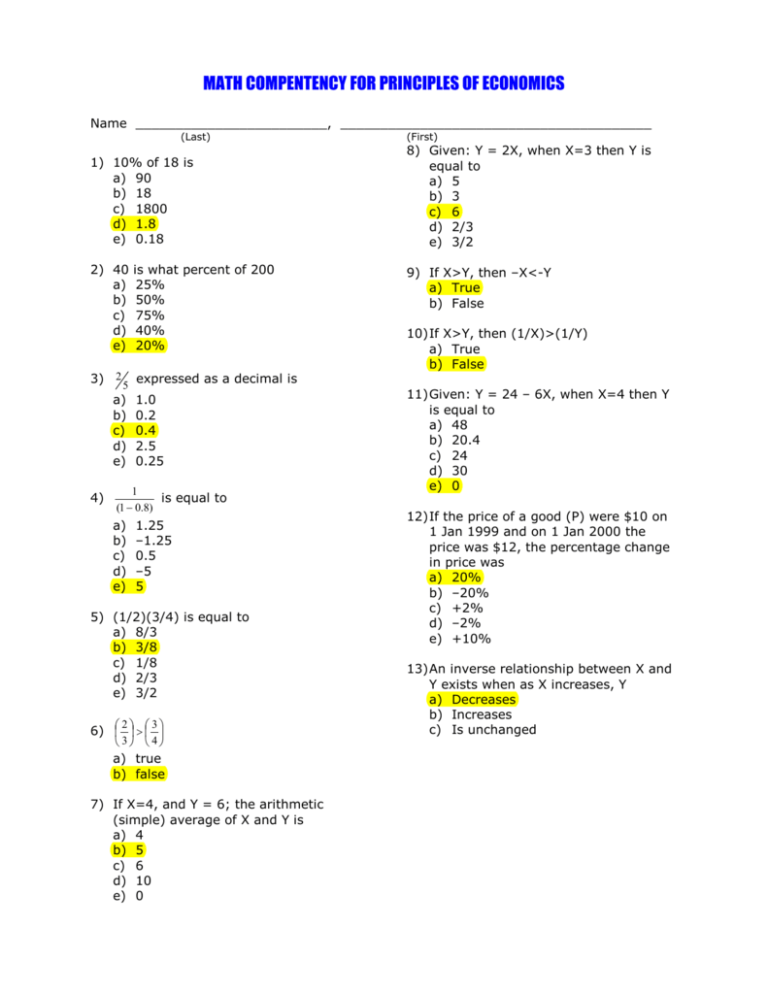
MATH COMPENTENCY FOR PRINCIPLES OF ECONOMICS Name ________________________, _______________________________________ (Last) 1) 10% of 18 is a) 90 b) 18 c) 1800 d) 1.8 e) 0.18 2) 40 a) b) c) d) e) is what percent of 200 25% 50% 75% 40% 20% 3) 2 5 a) b) c) d) e) expressed as a decimal is 4) 1.0 0.2 0.4 2.5 0.25 1 is equal to (1 − 0.8) a) b) c) d) e) 1.25 –1.25 0.5 –5 5 5) (1/2)(3/4) is equal to a) 8/3 b) 3/8 c) 1/8 d) 2/3 e) 3/2 æ 2ö æ 3ö è 3ø è 4ø 6) ç ÷ > ç ÷ a) true b) false 7) If X=4, and Y = 6; the arithmetic (simple) average of X and Y is a) 4 b) 5 c) 6 d) 10 e) 0 (First) 8) Given: Y = 2X, when X=3 then Y is equal to a) 5 b) 3 c) 6 d) 2/3 e) 3/2 9) If X>Y, then –X<-Y a) True b) False 10) If X>Y, then (1/X)>(1/Y) a) True b) False 11) Given: Y = 24 – 6X, when X=4 then Y is equal to a) 48 b) 20.4 c) 24 d) 30 e) 0 12) If the price of a good (P) were $10 on 1 Jan 1999 and on 1 Jan 2000 the price was $12, the percentage change in price was a) 20% b) –20% c) +2% d) –2% e) +10% 13) An inverse relationship between X and Y exists when as X increases, Y a) Decreases b) Increases c) Is unchanged 14) The equation, Y = 11 is represented by line ___ in Figure 1. a) a b) b c) c d) d 15) In Figure 1, the line that represents the equation, Y = 16 – 2X, is a) a b) b c) c d) d 16) Given the equation, Y = 16 – 2x, when X = 4, Y = a) 12 b) 10 c) 8 d) 6 e) 16 17) Given the equation, Y = 16 – 2X, the slope of the function is a) 16 b) –8 c) –4 d) –2 e) 2 18) Given the equation, Y = 10 - .5X, a one unit decrease in X will a) Leave Y unchanged b) Increase Y by 5 units c) Decrease Y by 5 units d) Increase Y by ½ unit e) Decrease Y by ½ unit 19) In Figure 1 a positive relationship between X and Y is shown by line a) a b) b c) c d) d 20) Which line(s) suggest a negative relationship between X and Y? a) a b) b c) c d) d Y 16 14 12 a c d 10 8 6 b 4 2 2 4 6 8 10 12 14 16 18 20 Figure 1 X 21) Which line in Figure 1 has a slope of 0? a) a b) b c) c d) d 22) In a) b) c) d) e) Figure 1, the Y intercept of line B is 16 8 10 11 4
